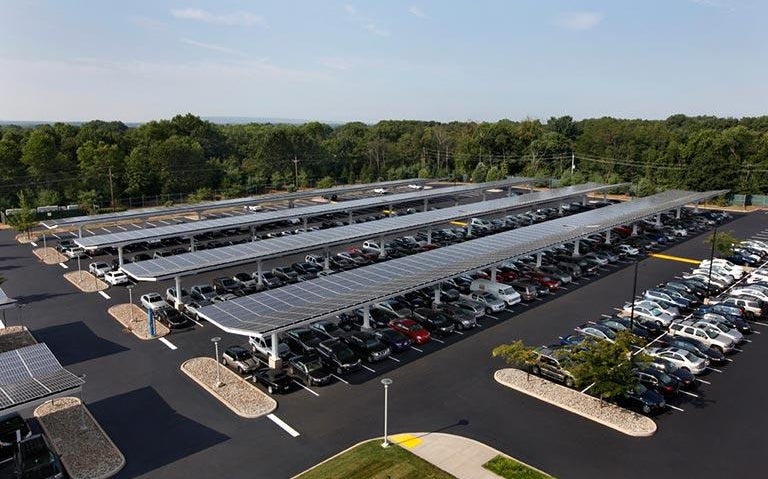Clean energy trade groups lined up Thursday in support of a new proposal from legislative Democrats that would embrace lower-cost, easy-to-install options for boosting the performance of the electric grid.
Bills filed by the House and Senate point people on energy and climate reforms, Rep. Jeffrey Roy and Sen. Michael Barrett, won praise as “commonsense” changes that could help the state move closer to its clean energy future without the same kind of major investment that other reforms will require.
The legislation (H 4222 / S 2531) that emerged for a brief committee hearing aims to expand the use of grid enhancement technologies, which are software or hardware tools that boost capacity and efficiency of existing electric grid infrastructure.
Under the bills, distribution companies would be required to examine the cost-effectiveness and viability of installing grid enhancement technologies whenever they pursue significant new construction, a change that Barrett has said would effectively push them to “exhaust their less expensive remedies” first.
“The types of grid enhancement technologies outlined in these two bills are smart, cost-effective and deployable today,” Natalie Hildt Treat, director of public policy for the Northeast Clean Energy Council, told lawmakers. “Just as we need to wring all of the efficiency out of energy where we use it, we should absolutely require and support technologies that allow us to get more out of our electric transmission system.”
State law calls for achieving net-zero greenhouse gas emissions by 2050 with interim targets along the way, and fulfilling that requirement will require a massive shift in how Massachusetts powers its homes, businesses and vehicles plus how the energy gets where it needs to go.
“To meet these targets, our electric grid needs significant improvement,” Kat Burnham, a senior principal with clean energy business association Advanced Energy United, said. “Our current infrastructure is not sufficient, and we need additional grid capacity urgently. Siting and building new transmission lines is a necessary step, but that can be time-intensive and come with considerable upfront costs.”
Burnham described three primary grid enhancement technologies that are currently available: dynamic line rating, which measures the real-time capacity of power lines based on temperature, wind and other ambient conditions; advanced power flow control, which operators can use to reroute energy to locations with available capacity; and topology optimization, which works to identify bottlenecks in the grid.
She called the legislation “very practical and straightforward in scope.”
“Put simply, grid enhancing technologies are often incredibly cost-effective technologies that help us maximize our existing infrastructure,” added Kyle Murray, Massachusetts program director with the Acadia Center.
The U.S. Energy Information Administration estimated last month that an average of 5 percent of the electricity transmitted and distributed in the United States annually from 2018 through 2022 was lost during transmission and distribution.
Roy and Barrett filed nearly identical versions of the grid enhancement technology bills last week, and both said they hope the measures form part of a much larger omnibus bill in 2024.
Although the duo suggested they are moving toward reconciliation after months of publicly sparring over committee procedure, they continue to hold separate hearings. Thursday’s event featured only representatives on the Telecommunications, Utilities and Energy Committee, and Barrett has said senators will convene their own hearing in January.
No one spoke in opposition to the grid enhancement technology bills Thursday, though a separate proposal from Barrett related to income-based fixed charges for electricity (S 2529) drew skepticism.
“The idea of an income-based fixed charge to increase electrification adoption is an unproven strategy that we believe will create more problems than it solves,” Sterling Clifford, manager of government affairs at residential solar and energy storage company Sunnova Energy, told lawmakers.

